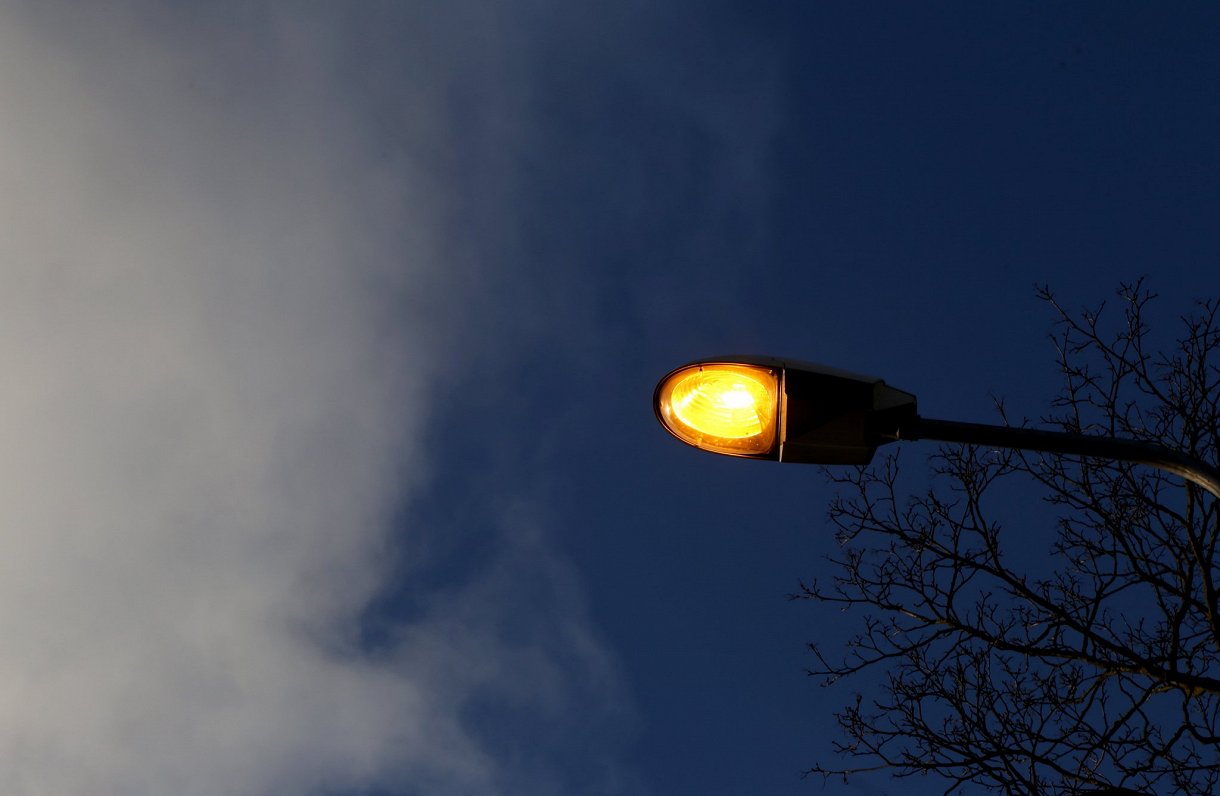From October 1 to April 30, various energy conservation measures were introduced by a special order in the Jēkabpils municipality, Uldis Skreivers, the executive director of the city council, told Latvian Radio.
"The chair of the municipality had issued an order and we have sought to stick to that [energy-saving plan]. You cannot tell at the moment how much exactly we have economized, but only by the streetlights being switched off [..] in December alone, compared with the previous year, electricity consumption has fallen by more than 20 per cent. So the funds are also well-economized. If we hadn't economized, we would be cornered by the price rise. We have reduced the impact of price increases on the local government budget," Skreivers said.
In the city of Balvi, such saving has resulted in a “zero balance” of electricity prices in the budget, said Maruta Castrova, head of the administration.
“We are at the same level as a year ago, as the kilowatt-hour [cost] has climbed, the austerity allowed them to align financially,” Castrova said.
The same was said at the municipality of Augšdaugava.
“We economized kilowatts, kilowatt hours, but in terms of money we are at a zero. This means that we have managed to offset the increase in [electricity] prices with savings, but we cannot predict what prices will be in the future,” said the City Council's Vice-President Vitālijs Aizbalts.
In Daugavpils, €800 thousand was allocated to street lighting last year and in autumn, for security purposes, the council decided to allocate an additional €150 thousand directly to street lighting. The city managed to fit into the budget, said Aivars Pudāns, head of Daugavpils municipality utilities management.
In order to further reduce electricity consumption, municipalities are already drafting and implementing projects aimed at introducing more economic lighting. For example, in the municipality of Augšdaugava, Arvīds Kucins, the chair of the council, said:
“In terms of money, the project amounts to around €300 thousand to replace the old lighting elements with much more economic ones.”
It is unlikely that this will ultimately lead to real savings in budgets, Kucins said cynically.
“We're already reducing kilowatts to a certain limit. This will be done by any private or legal [body], but the State will devise new mechanisms for collecting money so that the mass of money currently flowing into Latvenergo, which has a profit of over €130-€150 million, so it remains unchanged,” Kucins said.
Municipalities would like to see a logical and rational solution, including in the energy sector, at the state level.





























